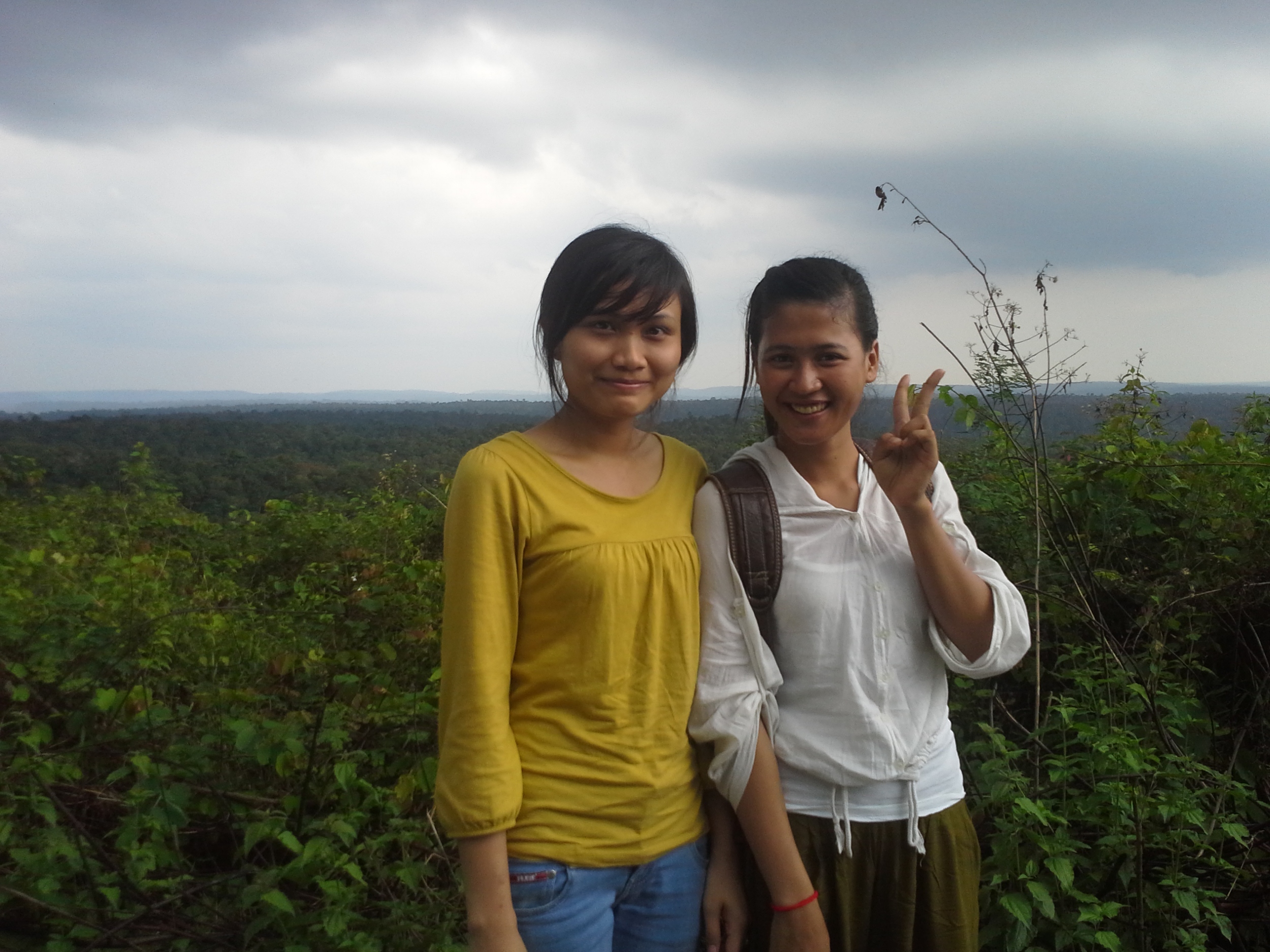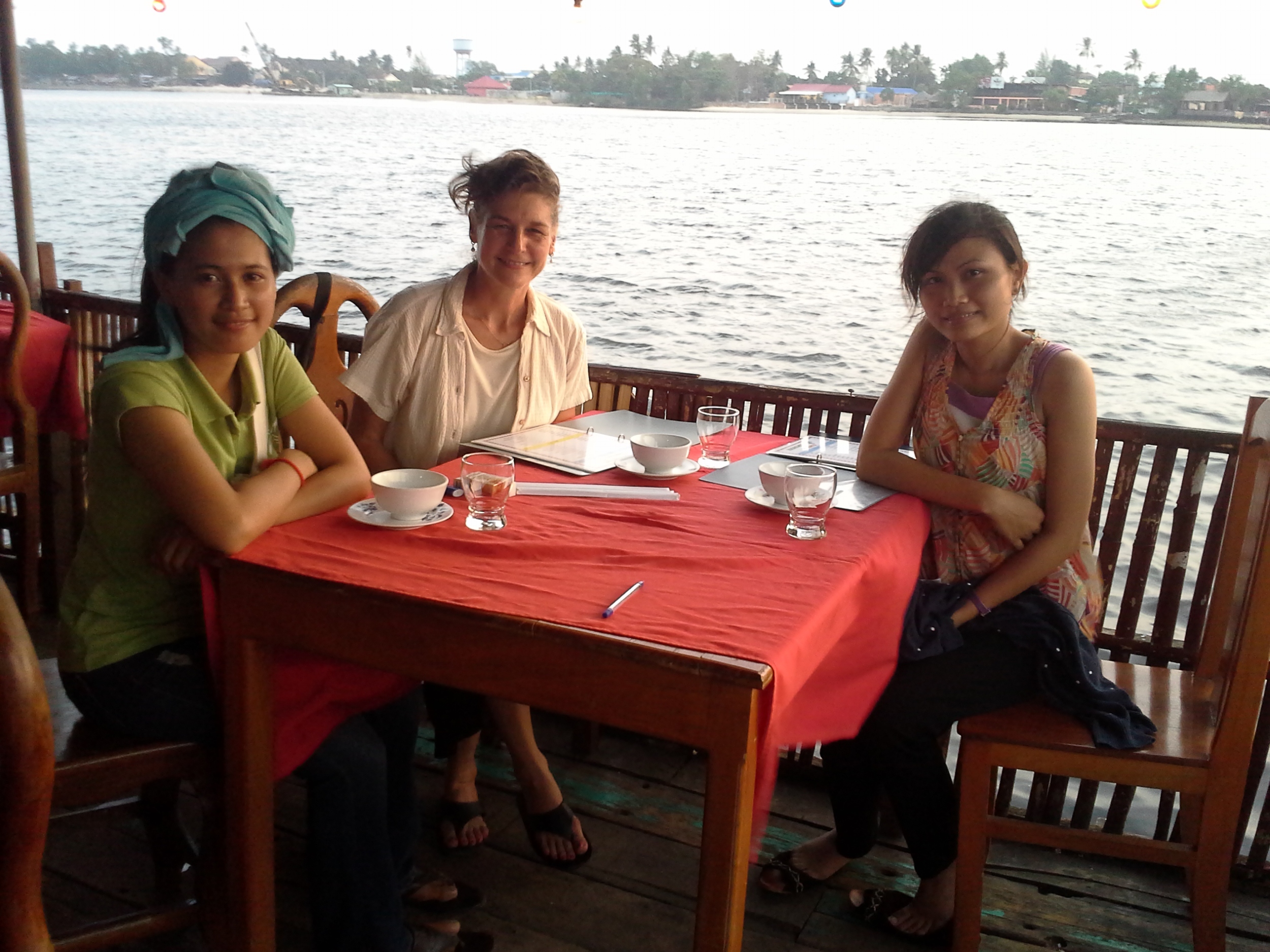This was our first interview in the field, traveling about two hours by car out of Phnom Penh to Takeo to visit Kim Khem at her home in a rural area about 30 minutes from the provincial capital city. Taing Samrich joined Sotheary and me as part of the team. It did make a difference that a male was part of our team, and at one point Kim Khem deferred telling details of a part of her story concerning rape as "the nephew was here with us." Though not formally educated, Kim Khem was learned in the ways of Chbap Srey, or the Code of Womenhood, and she prepared for us with canned drinks from the market and dressed in her traditional Khmer silk skirt. We also noticed that Kim Khem had a unique and traditional way of expressing herself, often using sounds rather than words (onomonpia), and frequently repeating whole sentences for emphasis and rhythm. Kim Khem's story is so important, among other reasons, because it spans a very long time over her 80-plus year life. We are able to see how she was impacted by armed conflict and oppressive regimes from her earliest childhood until even today. We interviewed Kim Khem inside the house she shared with her daughter, and the family, animals, and neighbors were always close by and are captured on the audio as part of Kim Khem's everyday environment.





